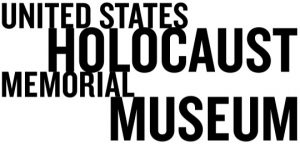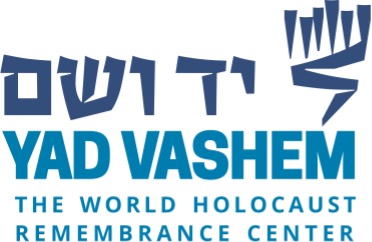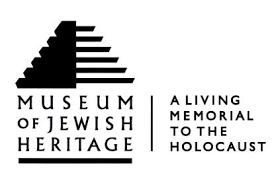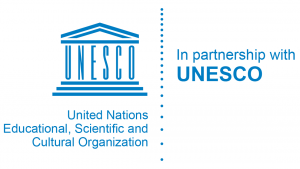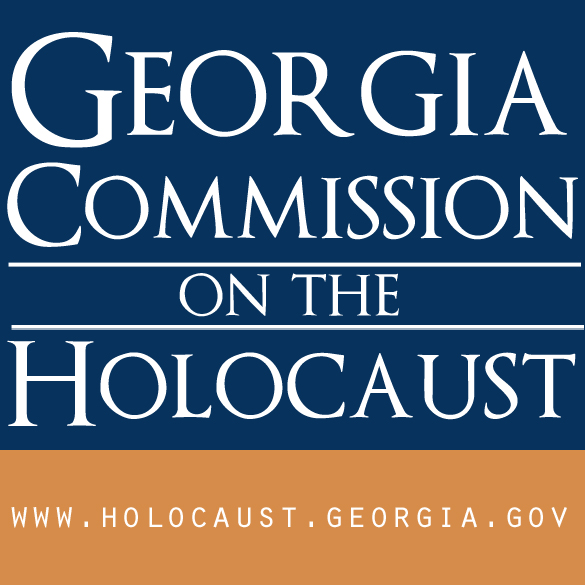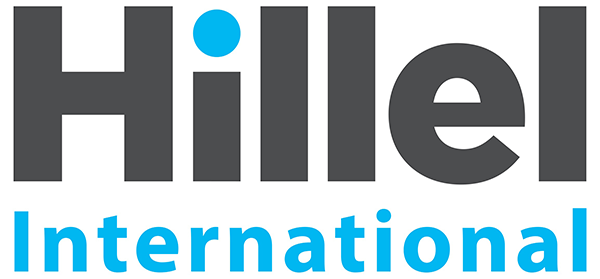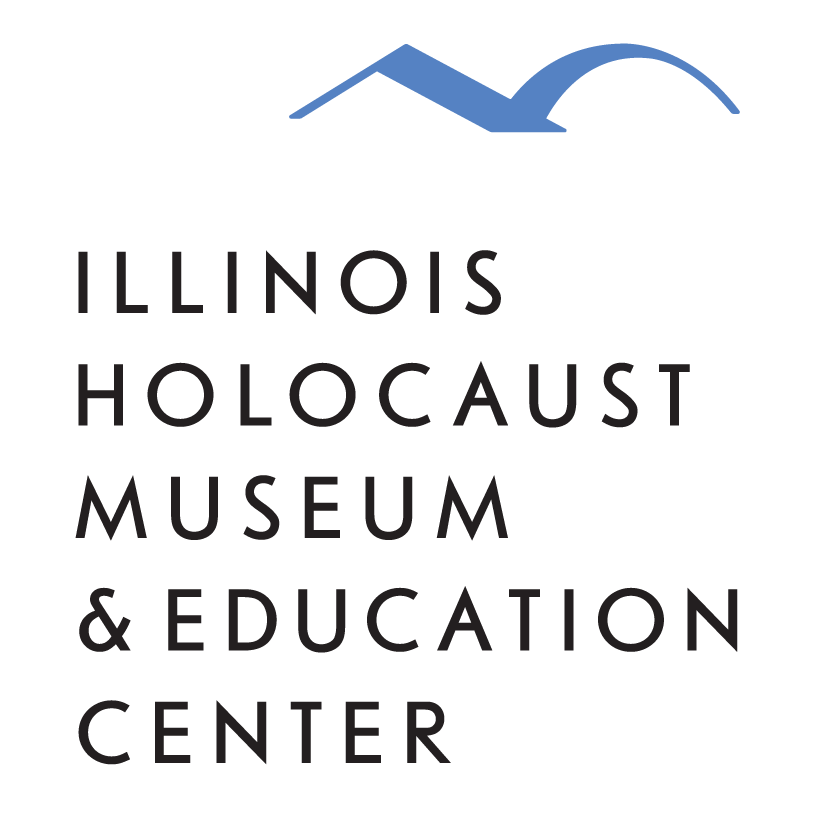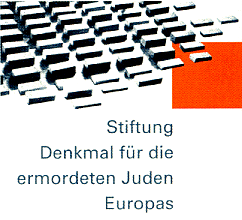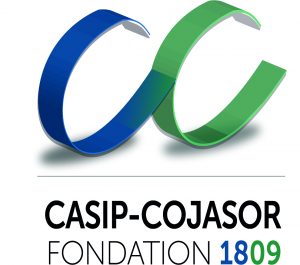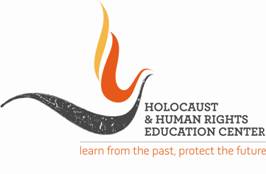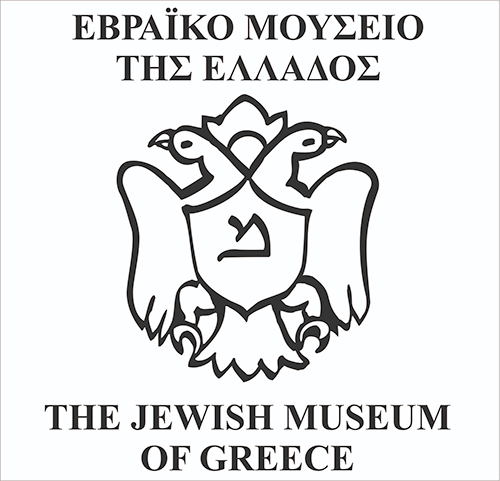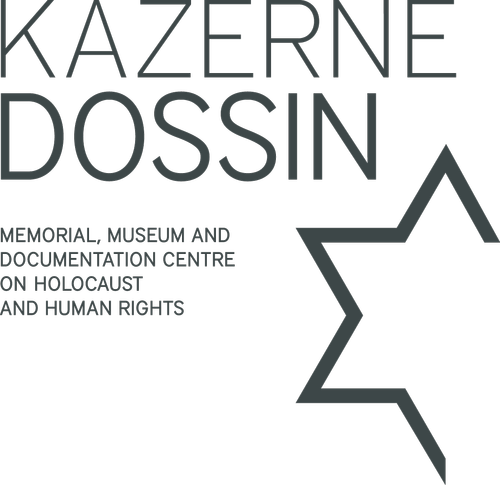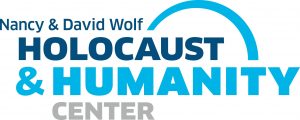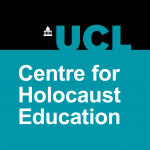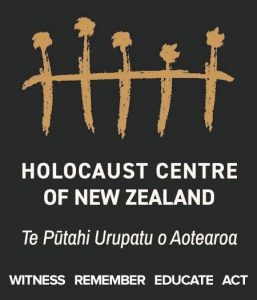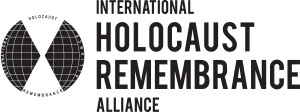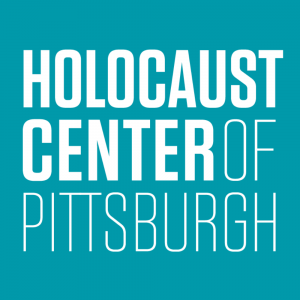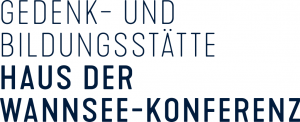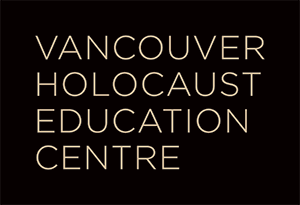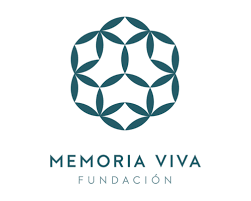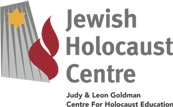#ItStartedWithWords is a joint project of the Claims Conference and participating organizations
United States Holocaust Memorial Museum (USHMM)
“Propaganda is a truly terrible weapon in the hands of an expert” wrote Hitler in 1924 when he was a somewhat marginal figure in German public life. But he was not marginal to the emerging Nazi Party where he served as its first director of propaganda. His insight was how to use its powerful messaging and new technologies to build a mass political and social movement in the context of German democracy.
Building on fear and resentment coupled with longstanding antisemitism, the Nazi Party deployed propaganda to offer a bold new vision for Germany. That propaganda helped to create a climate that emboldened the perpetrators, provided justifications for the collaborators, and helped silence the bystanders. All helping to make the genocide of the Jews possible.
–Sara J. Bloomfield, Director, United States Holocaust Memorial Museum
Yad Vashem
The building blocks upon which we strive to reconstruct and understand the historical past, including the Holocaust, are primarily words; words supplemented with personal images and artifacts, which, in turn, we explain with words.
It was with words – and images – that the Nazis and their adherents articulated their extreme antisemitic hatred and fanned its flames. With words they determined all Jews to be their archenemies and blamed them for all of the ills of society as they perceived them to be. Undoubtedly, without such hateful words, the brutal and murderous actions would not have followed; furthermore, it was with words that they justified perpetrating the crime of the Holocaust. [Continue reading]
Dr. Robert Rozett, Senior Historian, International Institute for Holocaust Research, Yad Vashem
Museum of Jewish Heritage
When you consider what hate can do, you do not have to look far. You bear witness to the manifestations of hate in our world today amid rising antisemitism and discrimination against people of all races and all faiths.
When we speak about the Holocaust, we remind people that it did not begin with violence. It did not begin with concentration camps and ghettos. It began in the minds of those who sought to sow division, who believed they were better than others. It then escalated into words to turn people against each another. And finally, it spiraled into violence and the death of millions.
When we say that one must never forget the Holocaust, it is because we must never forget how it began, how words gave voice to discrimination and led to genocide. As the son of a Holocaust survivor, I know well how hate speech can lead to hateful actions.
We must ensure we never experience another Holocaust, and so we all have an obligation to speak words that instead lead to peace and hope and promise of a better world.
Jack Kliger, President/CEO, Museum of Jewish Heritage – A Living Memorial to the Holocaust
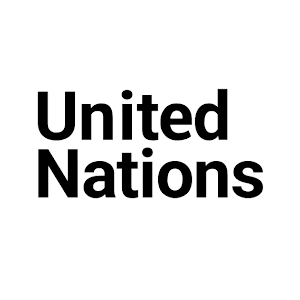
United Nations
“It Started With Words”
The Holocaust did not begin with killing. No genocide ever does. The roots of violence can be found in the words used to marginalize, dehumanize, isolate and discriminate. Words of hatred left unchecked can embolden, just as acts of violence that go unsanctioned develop an expectation of impunity. Words can normalize injustice.
This is what the words did that were printed by the Nazis in newspapers and textbooks, broadcast over radios, and spoken in classrooms and places of worship. Words can create and entrench stereotypes. The Nazis understood the power of words and used state organs to spread its propaganda. It also understood the power of silence, shutting down an independent press, and sending anyone who voiced opposition to concentration camps. Antisemitic words locked antisemitic attitudes into place. Words made the abnormal normal, and justified injustice.
Today we know that silence in the face of words of hate is not an option. We must counter words of hatred with words of knowledge; we must counter distortions with verifiable history. The United Nations will continue to ensure that the voices of the victims and survivors of the Holocaust are heard, reminding us of our common humanity, and the responsibility we bear towards building a world where all can live with dignity and in peace.
Melissa Fleming, UN Under-Secretary-General for Global Communications
UNESCO
As the Holocaust started with words, prevention starts with words. Education is key to countering hate speech, disinformation and conspiracy theories. Through the power of education, we can address antisemitism and intolerance, and build more inclusive and peaceful societies.
Director-General, Audrey Azoulay
Anne Frank House
Anne Frank was born into an environment full of prejudices, preconceptions, and language of hate. These factors still lead to manifestations of anti-Semitism in all parts of the world today. Her fate and that of millions of others show us that words do matter.
–Ronald Leopold, Executive Director, Anne Frank House
Georgia Commission on the Holocaust
It Started With Words…
Two Holocaust Survivors from Georgia recalled, decades later, the anguish they felt as a result of the words of those they considered to be their friends and neighbors:
The leader of the group was my best friend who I played ball with in the empty lot every day. And he saw me standing at the gate and he says, “What are you looking at, you dirty Jew?” Twenty-four hours after I got kicked out of school, everything had changed…“–Herbert Kohn, Holocaust Survivor, of blessed memory, from Germany.
What I recall that was really painful is one time seeing my father outside with a brush trying to get graffiti off our house. And on that graffiti was ‘Precz z Zydami,’ ‘Out with the Jews.’ –Tosia Schneider, Holocaust Survivor, of blessed memory, from Poland.
Today, we are witnessing the dangerous increase of hate speech, in live and online platforms, speech that dehumanizes individuals and groups. Hate speech erodes our relationships, our communities and our democracy.. We must not fail. The Holocaust teaches us that hate speech is just the beginning. It is just the first step in what can become genocide.
We must confront hate, in all its forms, before it escalates. It is our responsibility.
–Sally N. Levine, Executive Director
Hillel International
We have a solemn obligation to the millions who perished in the Holocaust to share their stories with future generations of Jews and non-Jews, as to ensure that it is never repeated. When we tell these stories, we must teach that the Holocaust did not start with mass deportations and genocide. It started with words. Hillel International is committed to teaching our students the power of words, both to bring communities together and to foster hatred and division, and combatting hate speech so that we can ensure a safe campus climate and secure Jewish future.
Adam Lehman, President & CEO
Samuel “Skip” Vichness, Ph.D., Chair, Board of Directors
Matthew Bronfman, Chair, Board of Governors
Anne Frank Zentrum, Berlin
Anne Franks Tagebuch zeigt uns, dass Worte eine Überlebensstrategie sein können. Wie sehr Worte aber auch verletzen, zeigt die Geschichte von Anne Frank ebenso wie die Geschichte tausender anderer jüdischer Kinder im Nationalsozialismus, bei denen die Ausgrenzung mit Worten begann und bei viel zu vielen in Verfolgung und Tod endete.
Patrick Siegele, Direktor Anne Frank Zentrum
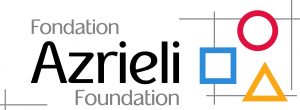
The Azrieli Foundation
Words have power. They shape our belief, drive our behaviour and create the world around us. Words can also enlighten and educate. The Holocaust Survivor Memoirs Program preserves the words and shares the legacies of survivors. Words are a profound way to connect with a real person and to learn about the Holocaust through the people who survived. By entering the past through the words of an individual, our understanding of history is forever changed. A history that started with words.
Dr. Naomi Azrieli, Chair and CEO, The Azrieli Foundation
Illinois Holocaust Museum & Education Center
As a Holocaust Survivor, I am often asked, “how could this have happened?” It starts with words. Such atrocities occur step by step, progressively through false narratives soon accepted as truth – with words that: dehumanize and exclude; label human beings as “other;” and create blame and fear.
Today we sadly live in an era where we are witnessing a dramatic increase in hate speech and antisemitism. We see it when swastikas are graffitied on lockers in hallways of our schools, hateful slurs are spread across social media emboldening racist ideologues, and in those who continue to deny and distort the reality of the Holocaust.
Ultimately, it’s important to remember that while words are often used to divide and harm, words can also be used for good – to heal and unite. We need to nurture the latter and not the former, demonstrating how to be Upstanders and how to use words to share the truth of our common humanity.
Fritzie Fritzshall, Auschwitz-Birkenau Holocaust Survivor and President, Board of Directors, Illinois Holocaust Museum & Education Center
Foundation Memorial to the Murdered Jews of Europe
In den letzten Jahren erinnere ich mich oft an Heinrich Heines berühmtes Zitat: »Dort wo man Bücher verbrennt, verbrennt man auch am Ende Menschen.« Doch in einer Abwandlung: Dort wo die Sprache verroht, ist der Weg in offene Gewalt gegen vermeintlich Andere geebnet. Wenn beispielsweise Begriffe wie »Umvolkung« oder »Überfremdung« Verwendung werden, müssen wir als Demokraten gegen diese Wörter aufbegehren, bevor sie zu menschenverachtendem Handeln führen.
In recent years, I often remember Heinrich Heine’s famous quote: »Where you burn books, you end up burning people.« But in a variation: Where language becomes brutalised, the way is paved for open violence against the supposedly different. For example, when terms like »Umvolkung« [ethnic replacement] or »Überfremdung« [foreign infiltration] are used, we as democrats must revolt against these words before they lead to inhuman actions.
Uwe Neumärker, Director, Foundation memorial to the murdered Jews of Europe
FONDATION CASIP-COJASOR
Vehigadeta Levineha : « And you’ll tell your children ». The Passover Haggadah recommends us to relate the story of the exit of Egypt to the young generation. In this spirit, the foundation Casip Cojasor, which is committed to the Shoah survivors and supports them with funds from the Claims Conference, also works with students who collect their testimonies of the persecutions suffered under the Nazi regime. Because we know that the power of words can destroy worlds, we know words can build worlds, as well.
Bildungsstätte Anne Frank
Aus der Geschichte der Weimarer Republik haben wir gelernt, wie schnell eine liberale Demokratie zum Unrechtsregime umgewandelt werden kann. Hass und Hetze hatten damals reale Konsequenzen. Auch heute müssen wir aktiv werden, damit sich die Geschichte nicht widerholt und Menschenfeinde daran hindern, unsere Demokratie zu unterwandern.
Meron Mendel, Bildungsstätte Anne Frank
Holocaust & Human Rights Education Center
Words hurt. Victims of bias and discrimination are subject to vitriolic language. In its programming, the Holocaust & Human Rights Education Center (Westchester, New York) works with teachers, students and the community at large to recognize the signs of prejudice in the words and symbols of hate.
Through presentations, workshops and curriculum materials, we trace the genesis of the Holocaust, beginning with the history of European antisemitism and the antecedents of the actions perpetrated by the Nazi regime beginning in 1933. We teach the Holocaust as both a unique event, but also the lessons of which reverberate in the study of contemporary global actions of man’s inhumanity to man.
Millie Jasper
Executive Director
Holocaust Curriculum Guide
Curated Book List: The Holocaust for Young Readers
Jewish Museum of Greece
The Holocaust did indeed not start with the gas chambers or the crematoria. That is where it ended, for so many… It started with words printed in the press, accusing and targeting those already marginalized and rendered vulnerable by insidious regulations, laws and propaganda.
With hateful words shouted over crowds in town squares, in neighborhoods, for which there was no healthy counter speech, no words of defense, of logic, of truth. Let’s work together to stop the hate speech from growing and spreading among us and poisoning the future of our children, because hate crimes start in hearts and minds, and if left unchecked, no one can be safe or immune.
Zanet Battinou, Archaeologist, Director of the Jewish Museum of Greece

International Auschwitz Committee
It began with words, it begins with people: people who charge the words with their hatred and chase them through the world of modern means of communication to those who also hate and are ready to strike: What was written on the t-shirt of a man who stormed towards the Capitol in Washington with an angry mob of rioters: Camp Auschwitz! The survivors of Auschwitz experienced first-hand what it is like when words become deeds. Their message to us: do not be indifferent!
Kazerne Dossin
Avec les expositions permanentes et temporaires et une série d’activités, le musée Kazerne Dossin veut mettre en évidence les mécanismes qui ont mené à un génocide d’une ampleur sans précédent. Il faut jamais oublié que ca a commencé par des mots.
Kazerne Dossin: Memorial, Museum and Documentation Centre on the Holocaust and Human Rights
The Auschwitz Institute for the Prevention of Genocide and Mass Atrocities
Reflecting a consensus held across the field of contemporary atrocity prevention, the Auschwitz Institute recognizes that genocide and mass atrocities occur as processes over time and not as single, isolated events. There is no case that exemplifies this understanding better than the Holocaust, which refers to policies and practices of destruction aimed against European Jews from 1939-1945 by Nazi Germany and its allies. However, some of these policies and practices came into existence as early as 1933, with Hitler’s assumption of power.
The Auschwitz Institute for the Prevention of Genocide and Mass Atrocities
Drawing from the work of Dr. James Waller, our Director of Academic Programs, the Auschwitz Institute has identified eight key phases of the process that enabled the extermination of at least 6 million Jews and at least 11 million non-Jewish victims. These phases include: 1) The dissemination of propaganda and “Othering,” 2) the development of racial ideologies for social exclusion, 3) legal attacks on civil and human rights, 4) economic expropriation, 5) state-sponsored violence, 6) mass expulsion and forced emigration, 7) forced concentrations and internment, 8) killing operations.
While the Holocaust unfolded differently in different places, identifying the character of this destructive process and the similarities that it shares with other historic mass atrocities informs our understanding of how genocides unfold. This knowledge, in turn, can help the global community to monitor the signs and symptoms that alert us to the emergence of genocide and other mass atrocities, opening windows of opportunity to interrupt this deadly process.
Holocaust Museum Houston
The Holocaust started with words. After WWI, Jews became scapegoats for all of Germany’s problems. In times of national or global upset, communities can become targets of bigotry and hate. Holocaust Museum Houston stands in solidarity with all vulnerable groups and offers a space to learn and understand the role of a citizen in our global community. It is up to all of us to speak out against hate-based violence and rhetoric.
Holocaust Museum Houston
Educator Resources
Professional Development for Educators
Musée de l’Holocauste Montréal
When a group of Holocaust survivors and young members of the Jewish community came together in 1979 to create the Montreal Holocaust Museum, they were acutely aware of the dangers of hate speech and the devastating impacts of antisemitic vitriol and propaganda.
Today, the Museum’s permanent exhibition, virtual exhibits, public events, and school programs for primary and secondary school students are rooted in the lessons transmitted by our survivor founders. Through these programs and many others, we seek to build better citizens who remain vigilant and speak up when confronted with hate, discrimination, and prejudice, and who remember that #ItStartedWithWords.
Virtual Education Programs
Primary Education Resources
Secondary Education Resources
Nancy & David Wolf Holocaust & Humanity Center
The Holocaust didn’t start with bullets. It started with words.” This quote from Cincinnati Holocaust survivor, Al Miller is something we focus on both in the exhibit and in our education efforts at the Nancy & David Wolf Holocaust & Humanity Center to describe the events that lead to the Holocaust. When Al speaks to groups he shares how powerful words can be. After all, it was words that led to the legislation the Nazis used to strip his family of citizenship, take their business and ultimately force them to leave Germany. Al’s family was fortunate to survive, but words ultimately lead to the systematic murder of millions.
Sarah L. Weiss, Executive Director/CEO
The Nancy & David Wolf Holocaust & Humanity Center
Virtual Teacher Training Program
UCL Centre for Holocaust Education
Rabbi Abraham Joshua Heschel was known to remark, when asked what message he would direct to young people, “I would say, let them remember that there is a meaning beyond absurdity. Let them be sure that every little deed counts, that every word has power, and that we can, everyone, do our share to redeem the world in spite of all absurdities…” What wisdom! As survivors of the Holocaust pass and we reflect on the poignant legacy they leave behind, let us not forget from the history of the Holocaust, that whilst words can incite hate and destruction of life, words too, can lead to all that is good and life-affirming. What we teach our children through our words and actions can shape, transform, safeguard and be that force for good. At the UCL Centre for Holocaust Education we are committed to educating young people about the Holocaust and its contemporary significance and ensuring that, ultimately, education is a “force for good.”
Proyecto Shoa
La Shoá no empezó con deportaciones y asesinatos masivos, empezó con la identificación de judíos, gitanos, afrodescendientes, entre otras minorías como enemigos. Empezó con la creencia de que “razas superiores” tenían derecho por sobre “razas inferiores” cuando se trataba de seres humanos.
No empezó en las cámaras de gas, ni tampoco en los guetos, empezó con estereotipos, mentiras y caricaturas. Empezó con una educación que tenía por objetivo el odio. La Shoá empezó con una adoctrinación tan fuerte como peligrosa.
Translation:
The Shoah did not start with the deportations and mass murders, but with the definition of Jews, Romani, and Black people, as well as other minorities, as the enemies. It started with the belief that there was a “master race” which was superior to and had more rights than the “inferior races,” when in truth they all were, of course, human beings.The Shoah did not start with the gas chambers or the ghettos. It started with stereotypes, lies, and cartoons. It started with the teaching of hate in the classroom. The Shoah started with a strong and dangerous indoctrination.
Holocaust Centre of New Zealand
We must be careful with what we say and be careful of our words we use as no genocide begins with actions – it all starts with words, the Holocaust is a clear example of this, words matter, chose wisely.
Chris Harris CEO of HCNZ
The Holocaust Centre of New Zealand plays a central role in educating New Zealanders about the Holocaust, and the importance of standing up to discrimination in our community especially antisemitism. The Centre is a strong voice for equality and unity throughout our country.
Inge Woolf QSO, Holocaust survivor and founding director, The Holocaust Centre of New Zealand
Inge passed away recently. May her memory be a blessing.
Our mission is The Holocaust Centre of New Zealand inspires and empowers action against antisemitism, discrimination, and apathy, by remembering, educating, and bearing witness to the Holocaust.
Holocaust Education Trust Ireland
The Holocaust did not begin with gas chambers and crematoria, it began with name-calling, taunting, spitting, pushing, shoving, and bullying… and it began with words, with hate speech. Words were used to promote hatred and antisemitism which ultimately led to the destruction of the Jewish people of Europe.
Holocaust Education Trust Ireland
International Holocaust Remembrance Alliance
The Holocaust started with the efforts to isolate Jews from the rest of their societies. The Nazis began the process of genocide by targeting Jews in their propaganda, with a campaign of degrading language, and by entrenching the distinctions between human beings. We need to stand together to support teaching and learning about the Holocaust, and to instill the importance of upholding fundamental rights, so that the next generation understands that their choices matter.
IHRA Chair, Ambassador Lazaris
The Holocaust Center of Pittsburgh
The Holocaust started with words. It started with scapegoating and dehumanizing the Jewish population of Germany. It started with lies that spread like wildfire, pitting neighbor against neighbor and friend. It took five years for the Nazis fully to incorporate hateful words into laws, to escalate from laws to systematic violence, and years more to export a specific form of violent hatred all over Europe. What ended with Auschwitz, started with words.
Lauren Apter Bairnsfather, Ph.D., Director, The Holocaust Center of Pittsburgh
Centro Ana Frank
The Shoah began with language. Hate speech was built upon emblematic phrases declaring a “superior aryan race” and labelling Jews as “undesirable parasites”. The Nazis wanted to subdue and exterminate anyone who did not fit their antisemitic ideas. Their poisonous mythology dictated that “Western Civilization” had to be saved from Jewish “barbarians.” Hate speech helped secure the path to the Holocaust and cemented the isolation and extermination of the Jews of Europe.
Centro Ana Frank
Wiener Wiesenthal Institut für Holocaust-Studien
Das Erinnern an den Beginn des Holocaust, insbesondere an den Beginn mit Worten des Hasses, der Geringschätzung und des Antisemitismus, ist eine unabdingbare Voraussetzung für das ERINNERN FÜR DIE ZUKUNFT. Reflexives Erinnern braucht den kritischen Umgang mit Geschichte, um Lehren für die Zukunft ziehen zu können. Nicht die Pogrome standen am Anfang. Es begann mit Hassworten, Hassreden und Hassschriften. Dagegen müssen wir uns JETZT und geschlossen stellen.
MRin Mag.a Terezija Stoisits
Vorstandsvorsitzende des Wiener Wiesenthal Instituts für Holocaust-Studien
Babyn Yar
With words, the Nazis demonized and dehumanized Jews. With words, the Nazis ordered Jews to leave their homes and march to their cruel death at the Babyn Yar ravine. With and without words, this appalling crime was effectively hidden for decades. Now, we must use words to right this historic wrong. With a clear, loud voice, we will tell the story of Babyn Yar and the 1.5 million Jews shot and murdered by the Nazis. #ItStartedWithWords. Now our words will educate the generations to come.
Babyn Yar – Holocaust Memorial Center

Jewish Cultural Quarter
When dealing with atrocity and genocide, our societies tend to concentrate on the actual outbursts and their consequences. We have to acknowledge, however, that the road to atrocity and genocide is often a slow trajectory of small legal measures, the denial of human rights and outright dehumanisation. This is relevant, not only when analysing historical events, but perhaps even more so when judging developments in our own contemporary societies.
Prof. dr. Emile Schrijver
General Director
Jewish Cultural Quarter
Haus der Wannseekonferenz
#ItStartedWithWords #EsBegannMitWorten Verbrechen können mit Worten beginnen, sie begleiten die Verbrechen, sie versuchen oft, die Verbrechen zu verschleiern und im Nachhinein zu verharmlosen – das zeigt auch das Protokoll der #WannseeKonferenz.
#YomHaShoah #YomHashoah2021
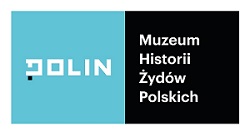
Muzeum Historii Żydów Polskich POLIN
On January 27th, 2020, during a celebration of the International Day of Commemoration in Memory of the Victims of the Holocaust in Auschvitz, Marian Turski, the chairman of the Polin Museum, declaimed these significant words: ‘Auschwitz didn’t fall suddenly from the sky’. The significance of this statement is that people failed or refused to foresee the danger coming from ideology based on xenophobia and hate. And that everything that happened later started from words. So don’t be indifferent: react!
Muzeum Historii Żydów Polskich POLIN
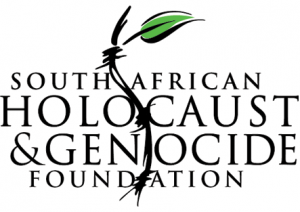
South African Holocaust & Genocide Foundation
The South African Holocaust & Genocide Foundation (SAHGF) acts as an association of the three independent Holocaust & Genocide Centres in Cape Town (CTHGC), Durban (DHGC) and Johannesburg (JHGC). The SAHGF supports Holocaust and genocide education through teacher training, development of classroom materials, and national educational projects.
The Holocaust teaches us that words matter and have consequences. Auschwitz survivor Max Eisen warned us that “it all began with words” and indeed, what started with words of hate, ended with genocide. We should be learning from the past, from genocide in the 20th century, to internalise the consequences of hate speech. Education, dialogue and lessons for humanity, focusing on human rights and warning of the dangers of indifference, apathy and silence, should encourage us all to be an active voice against instances of hate speech and related human rights violations everywhere.
Tali Nates
Founder & Director, Johannesburg Holocaust & Genocide CentreSouth African Holocaust & Genocide Foundation
Chairman, Cape Town, Durban and Johannesburg Centres
Mary Kluk, Director, Holocaust & Genocide Centre
Heather Blumenthal, Director, Cape Town Holocaust & Genocide Centre
Vancouver Holocaust Education Centre
By engaging with the Holocaust, we learn about the dangers of dehumanizing any group of people, the role of propaganda in inciting hate and what is as state when remaining a bystander. In the words of Vancouver-based Auschwitz survivor David Ehrlich (born in 1926 in Gherla, Romania): “The Holocaust shows us what can happen if racism goes unchecked. It did not start with the gas chambers; it started with a dictator who convinced his citizens that a minority were to blame for all the problems in the world.” The Vancouver Holocaust Education Centre’s online teaching resources, including those featuring Holocaust survivor voices, offer best practices and curriculum-based opportunities to teach and learn about the events of the Shoah and its relevance for today.
Nina Krieger | Executive Director
Vancouver Holocaust Education Centre
Memoria Viva
“Juden Raus” was a family board game popularized by the Nazi regime in 1932. The purpose of the game was to confiscate the Jews belongings, take possession of their properties and expel them from the town. At the end of the race, the winning team must shout “Juden Raus, Juden Raus!” The Holocaust started with words.
Jewish Holocaust Centre
After a visit to our museum a student wrote, ‘The Holocaust started with words… we need to be careful with the words we use.’ The students get it, we just need everyone else to understand that words spreading hate and lies are unacceptable. We must learn from history.
Jayne Josem, Museum Director & CEO, Jewish Holocaust Centre Melbourne
Education and Virtual Learning Resources

The Association of Jewish Refugees
“Tuesday came and I went back to school and was told to sit at the back of the class with the other Jewish boy and we were also told that we must not play with the other kids and they were told that they mustn’t play with us. We had to stay in our seats during break and we had to write in our exercise books in German ‘Austria is part of the German Reich – our Chancellor, our Fuhrer, is Adolf Hitler’.” These are the words of George Vulkan, born in Austria in 1929, as recorded in his ‘My Story’ testimony book.
When AJR members share the stories of their childhood years, what they often recall most vividly are events like the first time their teacher mocked them in front of the class for being Jewish; the first time they saw anti-Jewish graffiti daubed on a shopfront; or the first time that they heard the leader of their country spreading hate-filled conspiracies on the radio. What they remember is how it started with words.
Today, as many of these eyewitnesses lose the ability to share their stories, they implore us to remember what they experienced as children and to take heed. We honour their legacy by standing vigilant against the rise of hate speech and by committing to use the power of words to educate rather than to denigrate.
The Association of Jewish Refugees (AJR)
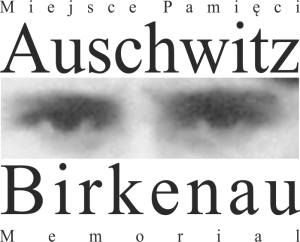
Auschwitz-Birkenau Memorial and Museum
“Zyklon B was used before the war for the delousing of uniforms and the extermination of rats on ships.
The SS used Zyklon B to murder Jews.
Coincidence? No! It was a direct consequence of propaganda.
Already in the 1920s, the Nazi and antisemitic weekly Der Stürmer had compared Jews to lice and rats.”
Auschwitz-Birkenau Memorial and Museum
The Claims Conference acknowledges the partnership of Facebook to help spread the word of Holocaust survivors for this important Holocaust Education campaign.
Conference on Jewish Material Claims Against Germany (Claims Conference)
The Claims Conference, a nonprofit organization with offices in New York, Tel Aviv and Frankfurt, secures material compensation for Holocaust survivors around the world.
Founded in 1951 by representatives of 23 major international Jewish organizations, the Claims Conference negotiates for and disburses funds to individuals and organizations and seeks the return of Jewish property stolen during the Holocaust.
As a result of negotiations with the Claims Conference since 1952, the German government has paid more than $80 billion in indemnification to individuals for suffering and losses resulting from persecution by the Nazis.
In 2020, the Claims Conference will distribute approximately $350 million in direct compensation to over 60,000 survivors in 83 countries and allocate approximately $610 million in grants to over 200 social service agencies worldwide that provide vital services for Holocaust survivors, such as home care, food and medicine.
Learn more at www.claimscon.org
